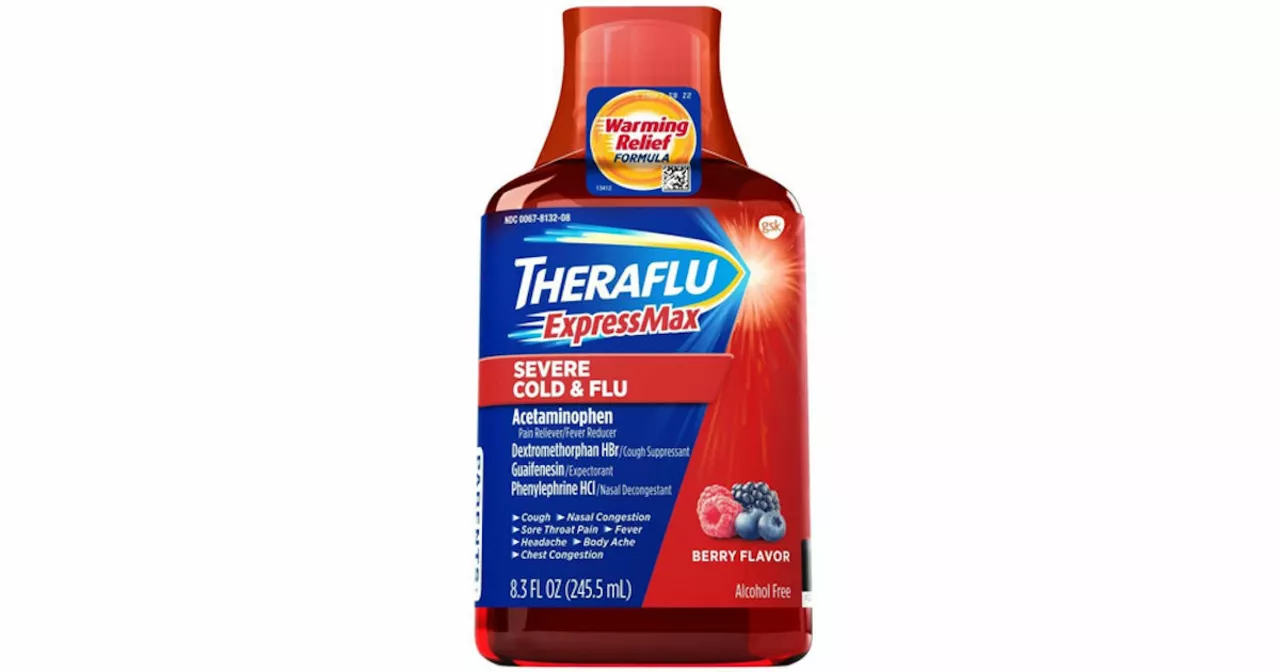
Guaifenesin for Coughs and Congestion: How It Works
Introduction to Guaifenesin
Guaifenesin is a popular over-the-counter medication that is commonly used to treat coughs and congestion associated with colds, flu, and other respiratory illnesses. It is an expectorant, meaning it works by loosening and thinning mucus in the airways, making it easier for you to cough up and clear your airways. In this article, I will discuss how guaifenesin works to relieve your cough and congestion symptoms, as well as the best ways to use this medication.
How Guaifenesin Works to Relieve Coughs
When you have a cough, it's often because your body is trying to expel mucus and other irritants from your airways. Guaifenesin works by increasing the volume and thinning the consistency of the mucus in your airways. This makes it easier for you to cough up and clear the mucus, which in turn can help to relieve your cough symptoms. It's important to note that guaifenesin is not a cough suppressant, but rather an expectorant that aids in the removal of mucus and other irritants from your respiratory system.
How Guaifenesin Works to Relieve Congestion
Congestion occurs when your body produces excess mucus in response to an illness or irritant, causing your airways to become blocked or obstructed. Guaifenesin helps to relieve congestion by thinning the mucus in your airways, making it easier for you to breathe. By reducing the thickness and stickiness of the mucus, guaifenesin can help to open up your airways and provide relief from congestion symptoms.
How to Take Guaifenesin
Guaifenesin can be found in various forms, including tablets, capsules, and liquid syrup. It is important that you follow the instructions on the label or as directed by your healthcare provider. Most guaifenesin products are taken every 4-6 hours, but the exact dosing and frequency will depend on the specific product and your individual needs. It's crucial to drink plenty of fluids while taking guaifenesin, as this can help to thin the mucus and promote its removal from your airways.
Possible Side Effects of Guaifenesin
While guaifenesin is generally well-tolerated, some people may experience side effects. These can include headache, dizziness, drowsiness, or upset stomach. If you experience any of these side effects and they persist or worsen, it's important to contact your healthcare provider. Additionally, if you experience any signs of an allergic reaction, such as rash, itching, or difficulty breathing, you should seek medical attention immediately.
When to Avoid Guaifenesin
There are certain situations in which you should avoid taking guaifenesin. If you are allergic to guaifenesin or any of its ingredients, you should not take this medication. Additionally, if you have a chronic cough due to asthma, emphysema, or chronic bronchitis, guaifenesin may not be appropriate for you. It is important to discuss your medical history and any other medications you are taking with your healthcare provider before starting guaifenesin to ensure that it is safe and appropriate for your specific situation.
Guaifenesin and Pregnancy
If you are pregnant or planning to become pregnant, it is important to discuss the use of guaifenesin with your healthcare provider. While guaifenesin is generally considered safe to use during pregnancy, it is still important to weigh the potential benefits against any potential risks. Your healthcare provider can help you determine the best course of action for treating your cough and congestion symptoms during pregnancy.
Guaifenesin and Children
While guaifenesin is commonly used to treat coughs and congestion in adults, it is important to be cautious when considering its use in children. Some guaifenesin products are not recommended for use in children under a certain age, so it is crucial to read the label and consult with a healthcare provider before giving guaifenesin to a child. Additionally, it is important to use the correct dosing for a child based on their weight and age to ensure safety and effectiveness.
Conclusion
Guaifenesin is a helpful over-the-counter medication for relieving coughs and congestion associated with colds, flu, and other respiratory illnesses. By thinning and loosening mucus in the airways, guaifenesin can help you breathe easier and provide relief from your symptoms. Remember to follow the instructions on the label, drink plenty of fluids, and consult with your healthcare provider if you have any concerns or questions about using guaifenesin. With the right approach, guaifenesin can be an effective tool in managing your cough and congestion symptoms.





Written by Jakob Fitzroy
My name is Jakob Fitzroy, and I am an expert in pharmaceuticals with a passion for writing. I have dedicated my life to studying medication and understanding how it affects various diseases. My goal is to educate people about the importance of proper drug therapy and prevention methods. I have authored numerous articles, providing valuable insights on medication, its development, and its impact on patients. My driving force is to contribute to the ongoing fight against diseases and improve the overall health and well-being of people around the world.
All posts: Jakob Fitzroy